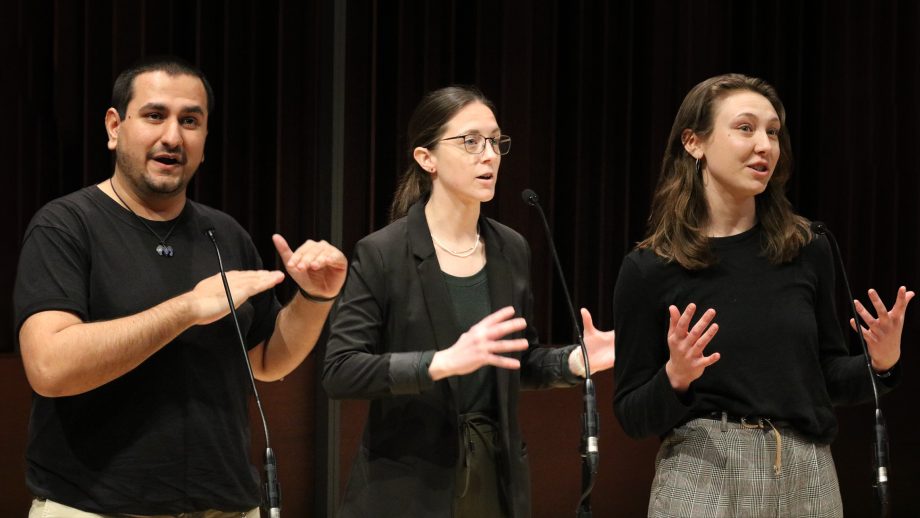WINNIPEG, MB – The University of Winnipeg today announced Dr. Kevin Walby, Assistant Professor, Criminal Justice, as the fifth Chancellor’s Research Chair.
Governments are increasingly relying on highly skilled security experts to work “in-house”, yet this area of policing has received little academic attention. Over the next three years, Walby’s work will focus on corporate security within the three levels of government primarily using freedom of information requests and interviews.
“It is a genuine honour to be selected from the pool of talented applicants for this opportunity,” said Walby. “Receiving this award will allow me to fund Uwinnipeg research assistants on a team-based project that should make international research contributions in criminal justice studies. It means I will be able to undertake one of the first major studies of a little-known yet pervasive form of corporate security. And it means I can help train the next generation of qualitative social scientists right here at UWinnipeg.”
The Chancellor’s Research Chair is open to all UWinnipeg tenure-track faculty members and carries an award of $7,500 per annum. It was approved by the Board of Regents in May 2011.
“The University of Winnipeg is known for providing high-quality research opportunities for students, and Dr. Walby’s program will bring invaluable new experiences into the Criminal Justice department,” said Dr. Neil Besner, Provost and Vice-President, Academic, UWinnipeg.
Summary of Dr. Kevin Walby’s Research Program
In-house or corporate security has been operating in private organizations since at least the early 20th century. Yet much has changed with corporate security since an in-house security unit was formed at Ford Motor Company. Corporate security today involves a set of social practices that centralize management of physical, personnel, and information security. And it has moved into the public sector as well. In-house or corporate security is different than contract security or public policing, yet scholars have neglected to study in-house or corporate security in its various forms.
This study will investigate the establishment and operations of public sector corporate security units at three levels of government in Canada and the USA. The transfer of corporate security into government has never been the focus of research in Canada or in the USA. Municipal, provincial and state, and federal governments are now rethinking in-house security, which raises questions about security policy transfer from the private to the public sector. Since 2001, municipal corporate security (MCS) units have emerged as prominent features of local governments in 21 Canadian cities. MCS units are now responsible for a range of practices including asset protection, camera surveillance and policing of ‘nuisance’ conduct (e.g., littering, loitering, alcohol consumption) on public lands, as well as surveillance of municipal employees and citizens. MCS units are nominally public agencies, yet their principle knowledge and technology transfer partner is the international private security industry, specifically American Society for Industrial Security (ASIS) International. Provincial and federal government agencies are now establishing corporate security units too. How public sector corporate security units operate in security networks and how security policies for corporate security units have diffused across government in Canada and the USA remains unknown. This dearth of empirical research restricts academic understandings of: security, government, and crime control practices; the differences between private and public sector corporate security; the differences between public sector corporate security in Canada and the USA; and debates about security networks and consumption. It also restricts policymakers from engaging in informed discussion about public sector corporate security unit merits and accountability.
– 30 –
MEDIA CONTACT
Diane Poulin, Senior Communications Specialist, The University of Winnipeg
P: 204.988.7135, E: d.poulin@uwinnipeg.ca





